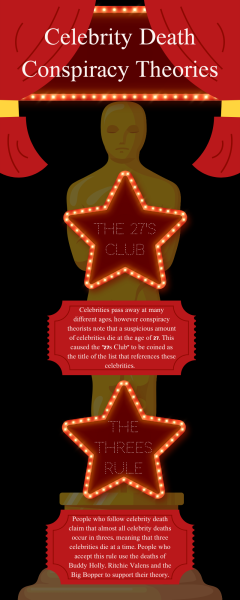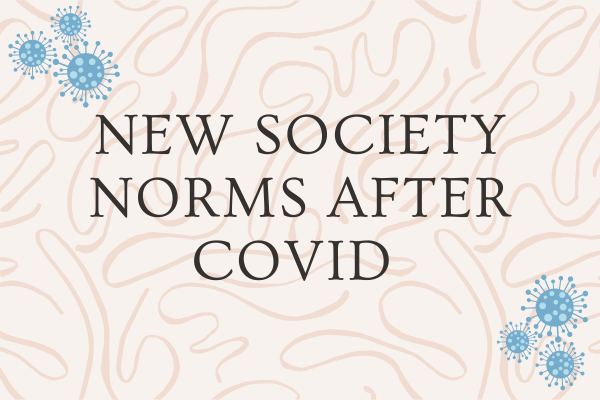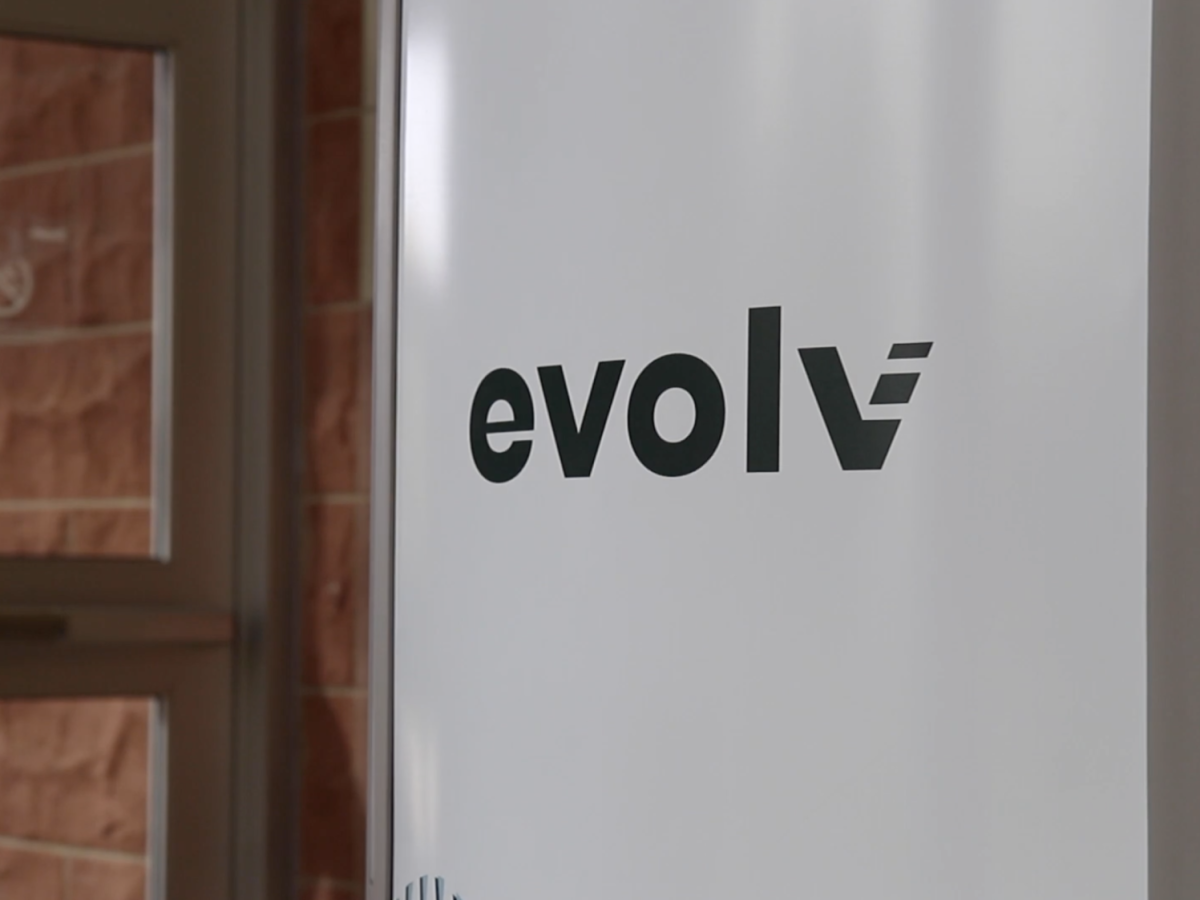Celebrities, often thought of as untouchable, influence society every day. Trends, brands and even foods celebrities consume cause people to make the same choices in their lives. Celebrity death affects many people in society, causing conspiracy theories, mass suicide and even the mourning of people that the fans know only through a screen.
“We give [celebrities] too much credit,” sophomore Avrie Melby said, “but without celebrities, we wouldn’t be where we are in our society. What they’re like and how they present themselves can inspire others, [but celebrities] can also cause insecurities, especially [for] young girls, which isn’t good.”
While celebrities have a large impact on society while alive, they can still cause change in society through death. When well-known celebrities die, people such as Melby feel a sense of loss.
“[After Liam Payne’s death] I was just grieving. It was the end of the era,” Melby said. “We were all waiting for the One Direction meet-up, the reconnection, and it’s never [going to] happen, because he died.”
When celebrities die, people often begin to create conspiracy theories to cope with or explain the loss of a celebrity. Theories such as the rule of threes and the 27s club were created by conspiracy theorists. The rule of threes claims that all celebrities die in threes, meaning that all celebrity deaths are connected. The 27s club shows the unusual number of celebrities who died at 27.
“I think that’s kind of concerning. It’s just odd and uncomfortable that people are so attached [to celebrities]. You’ve never personally met this person,” Melby said. “So that’s scary to have such a connection with someone that doesn’t have a connection with you.”
Feeling connected to celebrities stems from feeling as though they experience the same hardships we do, especially when a person is able to relate to their character. This artificial relationship often leads to fans having an unhealthy connection to their idols.
“I think my generation has a big problem with parasocial relationships with celebrities,” sophomore Izabelle Guerra said. “So I try my best to enjoy celebrities through music and other pop culture aspects on a normal level”
While it can be considered normal to feel grief over the loss of a celebrity, some fans take their actions too far. Studies show that after the loss of a celebrity, there is an influx of fans committing suicide. This contagion of suicides might seem unusual to average people such as Guerra, super fans see these celebrities as something worth giving up their lives for.
“There’s just no reason to put a celebrity on a pedestal, especially when you’ve never even met them,” Guerra said. “I think that comes from some inner issues and inner insecurity and wanting to find yourself through other people. So your first thing is to look at someone who other people enjoy as well.”
People can also feel a sense of grief when a celebrity dies young. Both fans and ordinary people acknowledge this loss of life as tragic and too soon. Guerra felt this when she discovered that an actor from a childhood movie passed away.
“I was disheartened, especially when I found out how [Cameron Boyce] died,” Guerra said. “I was young, so I didn’t really understand the concept of death the way an adult would. I was quite sad that there wouldn’t be any new Descendants that would include him.”
When people do not know how to deal with their emotions they often use ‘dark humor’ to cope. This consists of making jokes about dark or sad subjects such as death. Many of the younger generations such as Generation Alpha and Generation Z use humor to cope with the death of their favorite celebrities.
“People don’t really know how to handle [celebrity death], so my generation will make jokes, and I don’t support that,” Guerra said. “When Liam Payne died, I feel like my generation didn’t take it seriously and it was really unfortunate. We’re young, we don’t know how to cope with things that can be so sudden.”
Many celebrities die from overdoses and other types of substance abuse. Over time, the number of celebrity deaths due to this brought awareness to these problems. Many actors have come to the public about their problems, bringing awareness on their journey to be better and helping their fans know that they can also avoid these damaging behaviors.
“Some [celebrities] go too far,” sophomore Audrey Falkner said. “But there are ones that are so chill, and you can relate to them because they don’t try to change themselves.”
The unexpected loss of a celebrity can cause an even larger sense of grief in society. The sense of connection felt by fans causes them to feel as if they lost a friend and forces them to face their own mortality. Falkner feels this every time a celebrity from the Harry Potter series, such as Maggie Smith, dies.
“Some [celebrity deaths] you don’t really expect because you watch a show that you like, and then one day they die,” Falkner said. “It’s really just kind of like, oh, wait, they’re human.”
Many celebrities encourage positive causes and actions during their lifetime, some of which are continued on after their death. For some fans, one of the best ways to remember their favorite actors consists of keeping their causes and initiatives alive to continue on their legacy.
“Personally, I like celebrities. I like what some of them encourage, but they don’t really affect me that much,” Melby said. “But I do think it’s sad to see people dying, especially of substance abuse and like suicide, a lot of grieving happens whenever people see celebrities from their childhood die.”










